Thank you for agreeing to this interview, Viktorya. You’ve given us the unparalleled opportunity to talk to someone who knows Armenia’s current situation quite well.
It is difficult to imagine what Armenian people feel right now. They are, once again [1], experiencing isolation in the international arena while also dealing with a brutal military invasion by Azerbaijan. Could you please describe the current situation in Armenia, only weeks after the ceasefire?
How can I describe the situation in Armenia now? On 31st December, I was in the Yerablur Military Cemetery in Yerevan. It is hard to imagine that while the whole world was getting dressed up and celebrating the end of 2020, Armenian parents were burying their 20-year-old sons. And those parents were the lucky ones, as they sometimes referred to themselves. Many other parents have still not received the bodies of their children, almost two months after the end of the war. Others have seen their children being taken away or tortured as prisoners of war by the Azerbaijani army, without any hope that they will return one day. There are thousands of dead soldiers, thousands of disabled men.
The Armenians living in Nagorno-Karabakh have been largely displaced and are only slowly returning to their homes. Some of them will never go back again, either because they have lost their homes or because they do not feel safe anymore, even with the presence of Russian peacekeepers. An entire generation, if not the entire nation, is experiencing trauma, and the world is mostly uninterested in doing anything about it. Many questions remain unresolved, including the details of the signed deals, the return of dozens of prisoners of war being kept in Azerbaijan, the demarcation of the new borders, the question over the status of Nagorno-Karabakh—none of which anyone is rushing to resolve.
The EU’s response to the Azerbaijani aggression was objectively insufficient, if not nonexistent. Probably only one Member State, namely France, overtly expressed its concern about the new war in the Caucasus. What do you think were the reasons for this disappointing silence in the West?
There are several theories about this. Some say that the West is institutionally incapable because even for sanctions against Turkey and Azerbaijan, which could be the highest form of intervention, the EU requires 27 Member States’ approval. We have seen that unanimity is hard to achieve, even in the case of Greece’s conflict with Turkey or sanctions against Belarus, which is a more straightforward, more black-and-white case, in terms of understanding who is the villain.
Some say the EU was indifferent because it did not have enough interest in the conflict and was already busy with Brexit, coronavirus, and other domestic crises. The EU constantly referred to the OSCE as the sole framework for resolving the Nagorno-Karabakh conflict, but it has failed to understand that Azerbaijan does not want to sit around the negotiation table anymore. That position has been expressed by President Aliyev himself, when he belittled the OSCE Minsk Group’s efforts many times and most recently, in July of the last year.
Another theory highlights the importance of Azerbaijan as an energy and economic partner for the EU. On December 4, 2020, the European Commission welcomed ’Caspian gas’ to the EU. The last part of the 3,500 km Southern gas corridor, called Trans-Adriatic Pipeline (TAP), finally launched its operations, transporting gas from the Shah Deniz offshore field in Azerbaijan to Italy. I think we have seen that in its effort to move towards energy diversification, the EU has forgotten Article 21 of the TEU [2].
The real answer, in my opinion, is a combination of all of the factors mentioned the above. This is one of the conflicts in the Greater Europe towards which the EU has always been extremely cautious. The principle of territorial integrity is a painful question for many EU states, and the EU would never have a unanimous position that would put the principle of self-determination of the Armenians in Artsakh [3] over the principles of territorial integrity. Additionally, the EU probably does not want to escalate the already tense situation with Turkey or endanger the Trans-Adriatic Pipeline (TAP) operations by angering Azerbaijan with even a slightly critical reaction. In their view, there was already another institution responsible for peace mediation, and the EU had absolutely no interest in taking on that role.
What consequences could the Russian support for ceasefire negotiations have on the future of bilateral relations between Yerevan and Moscow? Do you think that in the long run, your country could lose interest in strengthening its ties with the EU and instead deepen its economic and political integration with Russia?
It is clear that the relations between Yerevan and Moscow probably have never been closer. I do not mean better; I just mean closer. Part of it is out of necessity, another part of it is true sympathy. After all, Russia was the only actor who stepped in, although quite late, and stopped the war at a very high cost for us. But there is nothing worth more than the lives of young men. Many people in Artsakh feel that Russia is the provider of their security, and many pro-Western liberals have no arguments left to support their foreign policy stance after such an aloof response by the EU and the US. Both Armenia and Artsakh are now closely tied to Moscow, and that will certainly affect the EU-Armenia relationship. I even think that the EU might just step back in Armenia for a while to see how events develop. It is, however, too soon to judge as the war has not really ended. It has just shifted from one status quo to another one, except this time, that status quo is managed and controlled by Russia. That is the only thing stuck in Aliyev’s [4] throat, which does not allow him to enjoy a full victory (even though he pretends he does).
Russian peacekeepers’ checkpoint at Vəng, a village returned to Azerbaijan as part of the 2020 Nagorno-Karabakh ceasefire agreement | By Mil.ru | License: CC 4.0
What do you think could be done to increase the awareness of the Armenian situation in the EU?
We have seen how many MEPs were vocal about the conflict, about the aggression and war initiated by Azerbaijan and the countless war crimes taking place even now after the deal was signed. But the discussion was quickly shut down when High Representative Josep Borrell said that he did not see any way of acting, other than supporting the OSCE Minsk Group co-chairs.
Meanwhile, Armenians are being kidnapped, tortured, and killed with no excuse or remorse. 58-year-old Alvard Tovmasyan, an Armenian woman with an intellectual disability, has been missing since November 10, 2020 from Karin Tak village, near Shushi. A couple of days ago, she was found dead and tortured “beyond recognition” outside of her home with her hands, ears, and feet cut off, according to her brother. Did any of the EU media outlets write about this? I barely found one foreign article on the website of Christian Concern. But can you tell me how many outlets would write about a similar case, if that happened in the EU? How many people have criticized Putin for attempting to kill Navalny? How many media outlets have been covering his return to Russia? Why are some dictators better than others? Why are some lives worth less than others? This is what upsets me, upsets us Armenians the most—the total ignorance and indifference paired with hypocrisy. Both European media and politicians are responsible for that.
Why are some dictators better than others? Why are some lives worth less than others? This is what upsets me, upsets us Armenians the most
But suppose the EU politicians and diplomats truly care about human rights, about international humanitarian law. In that case, they should do their best to pressure Azerbaijan to return Armenian prisoners of war and proceed to work towards developing some basic grounds for coexistence. This is the most critical question in our region, in both countries right now. Not climate change and not the development of SMEs, although they are all undeniably important in the long-term. If the EU fails to do even this, then I am not sure how truthful and resilient the Western, and more precisely, European values of respect for human rights are.
More generally speaking, what are the Eastern Partnership policies that could and should be improved so that the EU develops a better relationship with its Eastern neighbours, especially with those more distant ones such as Armenia?
The Eastern Partnership countries have very different levels of commitment to the EU, and so does the EU towards them. Some states get more attention, action, and resources, firstly because of their geographical location, and secondly, because of their readiness to be more integrated with the EU. A better relationship is a two-way street. The European Union cannot expect a good connection with any of the Eastern Partnership countries if the governments, and more importantly, the people belonging to these countries do not trust the EU anymore.
Right now, I can only speak for Armenia. During and in the aftermath of the Second Nagorno-Karabakh war, the vacuum left by the EU’s aloof response to the conflict was filled by the disappointment of the Armenian people. I see two ways of resolving the situation—either increase the impact of their actions by speaking out against human rights violations or decrease expectations. Of these, I think the second one is more likely right now. The EU should avoid pompous rhetoric of its unique influence in the South Caucasus region and generally, in the Eastern Partnership countries. Instead, it should be more honest with the latter about what it can and is willing to do. Maybe the EU has been clear about that with the Armenian government; we, as the general public, cannot know that. But in the end, what matters are people. Up until very recently, the Armenian people had great trust and confidence in the EU as a partner and friend. However, I can probably predict that we will see changes in the government soon.
As we can see, the upcoming weeks are crucial for the future of the EU-Armenian relationship and, more importantly, for peace and stability in the region which counts three out of six Eastern Partnership countries. Once again, thank you very much, Viktorya, for this truly eye-opening discussion.
[t]he Union’s action on the international scene shall be guided by the principles which have inspired its own creation, development and enlargement, and which it seeks to advance in the wider world: democracy, the rule of law, the universality and indivisibility of human rights and fundamental freedoms, respect for human dignity, the principles of equality and solidarity, and respect for the principles of the United Nations Charter and international law.”.]].
The real answer, in my opinion, is a combination of all of the factors mentioned the above. This is one of the conflicts in the Greater Europe towards which the EU has always been extremely cautious. The principle of territorial integrity is a painful question for many EU states, and the EU would never have a unanimous position that would put the principle of self-determination of the Armenians in Artsakh [5] over the principles of territorial integrity. Additionally, the EU probably does not want to escalate the already tense situation with Turkey or endanger the Trans-Adriatic Pipeline (TAP) operations by angering Azerbaijan with even a slightly critical reaction. In their view, there was already another institution responsible for peace mediation, and the EU had absolutely no interest in taking on that role.
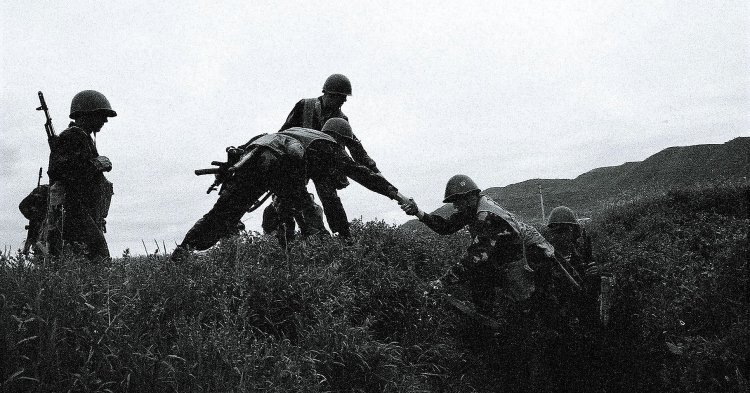
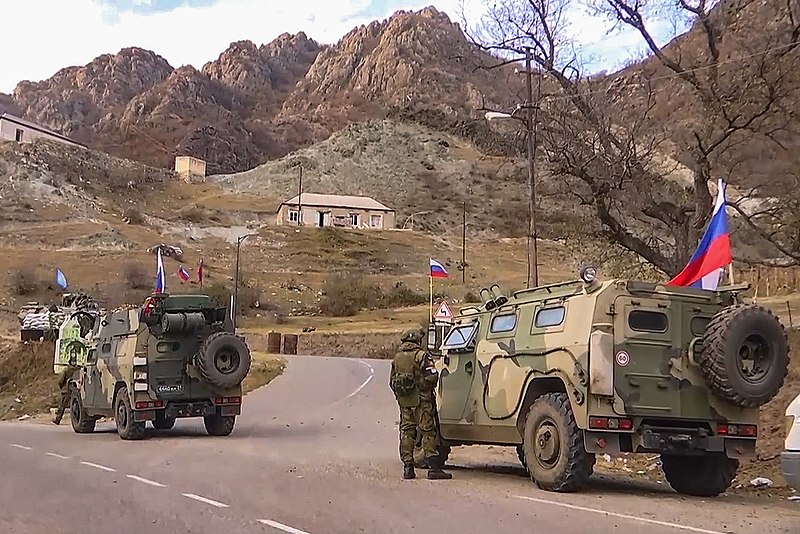

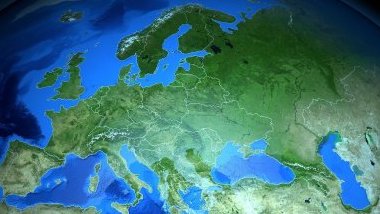
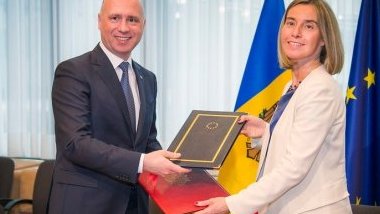
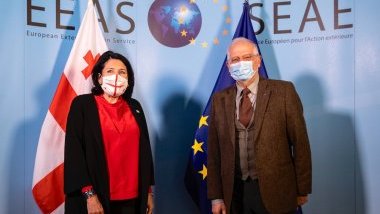
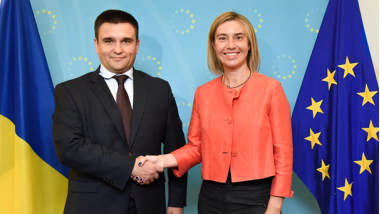
Follow the comments: |
|
